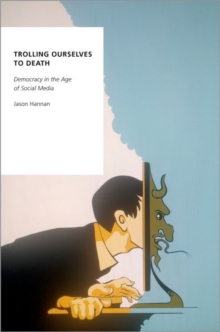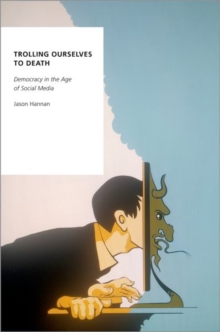
Democracy's Fourth Wave? : Digital Media and the Arab Spring Paperback / softback
by Philip N. (Associate Professor of Communication and International Studies, Associate Profess Howard, Muzammil M. (Ph.D. Candidate, Ph.D. Candidate, Department of Communication, University of W Hussain
Part of the Oxford Studies in Digital Politics series
Paperback / softback
- Information
Description
In 2011, the international community watched as a shockingly unlikely community of citizens toppled three of the world's most entrenched dictators: Ben Ali in Tunisia, Mubarak in Egypt, and Qaddafi in Libya.
This movement of cascading democratization, commonly known as the Arab Spring, was planned and executed not by political parties, but by students, young entrepreneurs, and the rising urban middle class.
International experts and the popular press have pointed to the near-identical reliance on digital media in all three movements, arguing that these authoritarian regimes were in essence defeated by the Internet.
Is that true? Should Mubarak blame Twitter for his sudden fall from power?
Did digital media "cause" the Arab Spring? In Democracy's Fourth Wave?, Philip N. Howard and Muzammil M. Hussain examine the complex role of the Internet, mobile phones, and social networking applications in the Arab Spring.
Examining digital media access, level of grievance, and levels of protest for popular democratization in 16 countries in the Middle East and North Africa, Howard and Hussain conclude that digital media was neither the most nor the least important cause of the Arab Spring.
Instead, they illustrate a complex web of conjoined causal factors for social mobilization.
The Arab revolts cascaded across countries largely because digital media allowed communities to realize shared grievances and nurtured transportable strategies for mobilizing against dictators.
Individuals were inspired to protest for personal reasons, but through social media they acted collectively.
Democracy's Fourth Wave examines not only the unexpected evolution of events during the Arab Spring, but the longer history of desperate-and creative-digital activism through the Arab world.
Information
-
In Stock - low on stock, only 1 copy remainingFree UK DeliveryEstimated delivery 2-3 working days
- Format:Paperback / softback
- Pages:160 pages, 8 tables, 2 photographs, 5 graphs
- Publisher:Oxford University Press Inc
- Publication Date:04/04/2013
- Category:
- ISBN:9780199936977
Information
-
In Stock - low on stock, only 1 copy remainingFree UK DeliveryEstimated delivery 2-3 working days
- Format:Paperback / softback
- Pages:160 pages, 8 tables, 2 photographs, 5 graphs
- Publisher:Oxford University Press Inc
- Publication Date:04/04/2013
- Category:
- ISBN:9780199936977



